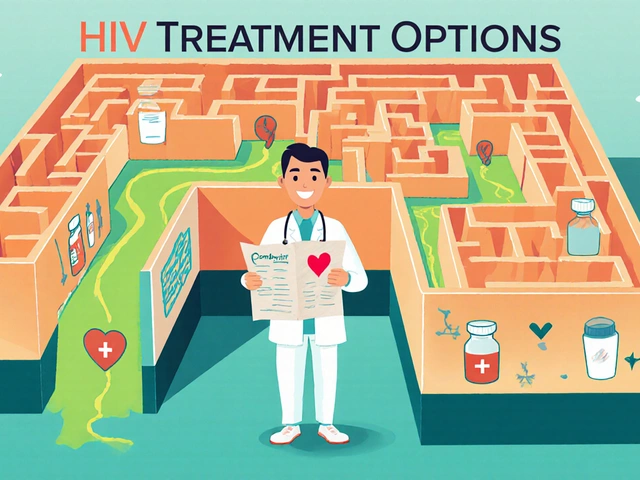Antidepressant Medications: What to Know Before You Start
Antidepressants can change your life — but they also bring questions. This guide gives clear, practical facts about common drug types, how long they take to work, likely side effects, and simple safety tips you can use when talking with your doctor.
How they work and main types
Most modern antidepressants affect brain chemicals that control mood and stress. The main classes you’ll hear about are: SSRIs (like sertraline), SNRIs (like venlafaxine), tricyclics (older drugs such as amitriptyline), MAOIs (used less often), and atypical agents (bupropion, mirtazapine). SSRIs are usually first choice because they balance benefit and tolerability for many people. SNRIs can help when pain or low energy is part of the problem. Tricyclics and MAOIs can work well but need more monitoring and have stricter food or drug limits.
Expect a timeline: some side effects may start in days, but mood usually improves after 2–6 weeks. If you see no benefit after 6–8 weeks at a therapeutic dose, talk to your prescriber about dose change or a switch.
Practical tips: starting, side effects, and safety
Start low, go slow. That means beginning at a lower dose to reduce nausea, sleep changes, or headache, then increasing under medical guidance. Common short-term effects include dry mouth, mild nausea, drowsiness or insomnia, and sexual side effects. These often fade in a few weeks; sexual problems may persist and should be discussed openly.
Watch for worrying signs: sudden mood changes, increased anxiety, or suicidal thoughts — especially in young people — need immediate contact with your provider or emergency services. Never stop an antidepressant abruptly; withdrawal symptoms like dizziness, flu-like feelings, or electric shock sensations can occur. Taper slowly based on advice from your prescriber.
Drug interactions matter. Tell your clinician about all medicines, supplements, and alcohol use. Combining SSRIs or SNRIs with MAOIs or certain migraine drugs can cause serotonin syndrome — a rare but serious reaction. Alcohol can worsen depression and increase sedation with many antidepressants.
When switching drugs, allow time between stopping one class and starting another if required (MAOI rules are strict). If a first medication doesn't help, options include raising the dose, switching classes, or adding therapy such as psychotherapy or a second drug.
Don’t forget non-drug options. Therapy, exercise, sleep improvements, and managing alcohol use can make medications work better. Keep a simple symptom diary — mood, sleep, appetite, and side effects — to measure progress and guide decisions.
Talk openly with your provider. Ask about expected benefits, how long to try a medicine, common side effects, and a clear plan for follow-up. With good monitoring and honest communication, antidepressants can be a safe and effective tool for most people.
Special situations need extra care: pregnancy, breastfeeding, older adults, and people with liver or kidney disease. Your doctor may choose specific drugs, adjust doses, or order blood tests. Always mention history of bipolar disorder—antidepressants can trigger mania without mood stabilizers. This step prevents harm and improves treatment success.

Purchase Wellbutrin Sr Safely - Your Trusted Online Pharmacy
Hey there, folks! If you're on the hunt to buy Wellbutrin Sr, this is the right spot. I've been where you're at, looking for a reliable way to get my meds without hassle. So, I want to share with you the lowdown on purchasing Wellbutrin Sr online safely and conveniently. It's super important to find a trustworthy pharmacy, and I'll walk you through how to spot one. We'll go over the benefits of taking Wellbutrin Sr, how to discuss it with your doctor, and the peace of mind you get knowing you're taking care of your mental health. Now let's dive in and get you started on your path to wellness!
View More




